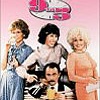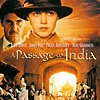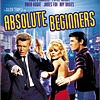There’s not much that comedian and actress Julie Walters has done that I haven’t thought was brilliant – particularly her collaborations with Victoria Wood - but I don’t think I’ve ever loved her more than when she portrayed Susan ‘Rita’ White in the film adaptation of Willy Russell's stage play Educating Rita.
Written as a comedy, but rich in pathos and tender moments, Educating Rita focuses on the burgeoning relationship of a two very different people who are thrown together in the beginning through an act of timetabling but who genuinely mean something to each other by the end.
By turns feisty, heartbroken, passionate and lonely, Walters is utterly believable as the young woman who desperately wants to improve herself; to learn and to therefore - in her mind anyway -better herself and the life she is currently living. Helping her to achieve her goal, whether he means to or not, is Dr Frank Bryant (Michael Caine), a university lecturer who gets assigned as Rita’s Open University tutor.
Rita is a chirpy, brassy blonde Liverpudlian hairdresser and wife to Denny. Aged twenty six, the feeling that there is more to life has just started burning inside her, and it is this fire for education that begins to open up the divide between her and her husband. Denny can’t understand why she wants to learn; why can’t she simply be content with her nice little job whilst trying to start a family? Does she suddenly think she’s better than her working class roots? But Rita knows that it’s not the right time for her to have a baby; she needs to find out who she really is before she can consider bringing somebody else into the world – that’s why she enrols onto her OU course.
Frank teaches comparative literature, but his fire has most definitely gone out. Once an accomplished writer and poet he now has no enthusiasm left for his subject, can’t stand the students he teaches and dulls the pain of his empty existence with whisky, hiding the bottles behind the books in his study. Often drunk whilst teaching, he becomes distracted, or starts urging his pupils to get out of the classroom and experience life instead. At the beginning of his assignment as Rita’s tutor he wonders why any adult would want to come to the University and write essays after a hard day at work. Frank has lost the love for learning; could Rita be the one to find it for him again?
When Rita first goes to see Frank, there is a chemistry of sorts between the pair immediately, although on the surface the two couldn’t be more different. Desperately in need of a haircut and a general tidy, Rita’s blunt assessment of Frank is of a ‘geriatric hippy’, but she likes his humour and relaxed attitude. Frank is drawn to Rita’s spark; her vitality and her enthusiasm for his subject, and is reluctant to help her towards an education that he considers worthless. He worries that by helping Rita to be accepted by the academic world he will be forced to rub away the fresh and original parts of her personality that he is drawn to but she is insistent that she needs to learn, to be able to understand what those she admires are talking about. After badgering him for a while he agrees to continue her tutoring. We, the audience, can now see that Rita is trying to gain entry to a part of society that Frank has long lost interest in, whilst Rita’s qualities (spontaneity, unpretentious thoughts, a positive outlook on life) are not only those that Frank has now come to hugely appreciate, but are also what she is trying to replace with academic thinking!
Rita’s first attempts at literary theory are a long way from ‘acceptable’, although Frank finds her ability to write exactly what she thinks refreshing. As his tutorials continue however Rita finds herself increasingly able to understand and analyse the literature she is given, but Frank continues to inwardly struggle with the change he is bringing about within her.
Rita would be able to make better progress in her studying if she could count on support from Denny, but unfortunately his prehistoric attitude would rather keep her in a ‘traditional’ role. He is not interested in her OU course; in fact he would rather discourage her completely and keep her in what he sees as her rightful place in life. He is helped in this regard by the rest of Rita’s family, who also feel that she is betraying her working class roots by trying to better herself, and especially by her father who criticises her for not yet providing him with a grandchild. Things come to a head one day when Denny comes across Rita’s hidden stash of contraceptive pills, and in revenge for her duplicity, burns all her academic texts and papers on a bonfire in the yard whilst Rita fights back tears. He gives her his ultimatum: either give up her studies and become a good wife and mother, or leave.
This is crunch time for Rita; determined to continue with her new life she leaves Denny, and realises that she is treading her path alone. She still doesn’t feel like she can hold her own with other students, but her immersion in to academia has left her feeling like a stranger in what had been her real life up until then. Finding an inner resolve she ploughs on, working hard to acquire the knowledge that she craves. She also finds a new place to live, and through this meets Trish (Maureen Lipman); a flamboyant and cultured woman who takes Rita under her wing and introduces her to the kind of people, music and books that she feels she should be surrounded by. Rita revels in these new experiences, so much so that when she returns from summer camp Frank barely recognises the confidant and erudite person that she now is. Frank is not comfortable with the changes that his once unique and sparky student has undergone, feeling that she has been gradually moulded into a carbon copy of the very people he can no longer stand to be around. Whilst Rita has been flying higher and higher, Frank has been sliding lower into his deterioration, and now relies evermore on alcohol to get him through his days. A drunken tirade about Rita’s newfound lifestyle leaves her fuming; she goes ballistic at Frank, berating him for his self-pitying nature, his drinking and his cynicism towards her now.
Rita is sure that Frank’s attitude is wrong; by appreciating and being able to join in conversations about art and literature, by knowing what wine to drink and what music to listen to she must be able to live a fuller and happier life. But when Trish – informed, knowledgeable and seemingly happy Trish – attempts suicide Rita is forced to rethink what she had until then held true. Knowing all these things doesn’t necessarily point to a contented existence; when Trish recovers she explains to Rita that the only times she felt alive were when immersed in the arts, but when the music and poetry stopped simply being Trish was ‘not enough’. The doors of enlightenment open for Rita when she finally realises that higher learning on its own is not everything, and that Frank was actually right when he said that knowledge by itself was meaningless. It was only when you question that knowledge that you start to really learn anything. Rita drops the pretensions about education that she has been carrying, changes her name back to Susan and takes the exam that Frank has entered her for.
She goes back to see her tutor afterwards, wanting to offer him an olive branch, only to find him packing up his study. After his last drunken encounter with the University Bursar he has been ‘offered’ the chance to take some time off from his teaching role there, and go to Australia for two years. In a question that tells you how much Rita has meant to him since the day they first met, Frank asks her to accompany him; Rita gently turns him down. She does however give him a haircut; an intimate gesture, and something she’s obviously been dying to do since she first laid eyes on him.
The final scene is at the airport; Rita stands at the gate listening to the final call for Frank’s flight. He arrives just in time, late because he has been to collect her exam results. She has passed with distinction; and he can leave her knowing that she is now ready to take on the world as who she is, not who she feels she should be. Her final words to her tutor as he turns to get on his plane are ‘Thanks’.
Russell’s original play was a two-hander; set entirely in Frank’s study there was no conversation other than what was said between the tutor and his protégé. Whilst the 1983 Lewis Gilbert film adaptation has a handful of other characters involved it still feels very much like a two-hander, with Walters’ and Caine’s heart-wrenching and humorous performances becoming the only thing you are really aware of.










Do You Remember Educating Rita?
Do You Remember Educating Rita?